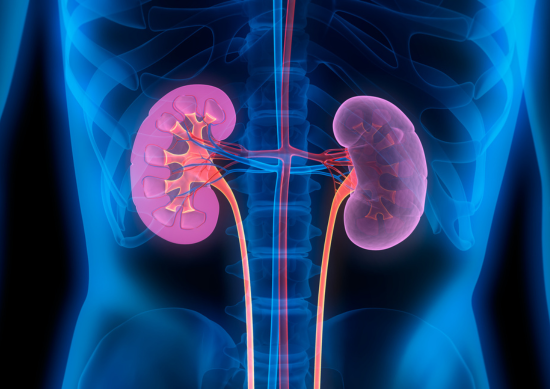
Kidney transplantation offers significant benefits over dialysis for patients with end-stage kidney disease, yet many potential candidates face significant barriers delaying or preventing their evaluation. According to nephrologist Brian Benes, DO, one of the biggest barriers is simply a lack of awareness about eligibility.
"Unfortunately, patients and even some physicians believe that certain conditions, such as obesity, or a recent cancer rule out kidney transplantation as an option. So, referral may be delayed or incomplete as patients will avoid completing the referral packet," explains Dr. Benes. "What we've learned is that every qualifying patient should be referred for transplant evaluation because these ‘barriers’ may not be prohibitive at all.”
Timing matters
Referring patients before they need dialysis creates the optimal window for transplantation. The time spent on the waiting list is a primary factor for organ allocation, and there are two ways to accrue waiting time:
- Preemptive time: When a patient's estimated glomerular filtration rate (eGFR) is 20 or less.
- Dialysis start date: Time accrues from when a patient begins dialysis.
"In a perfect world, we would try to get everybody their kidney transplant when they have a GFR around 15 or are starting to have symptoms from end-stage kidney disease but aren't on dialysis yet. That's that sweet spot," says Dr. Benes.
Common misconceptions
Many conditions previously considered absolute contraindications for transplantation are now being reconsidered:
Obesity, frailty, and functional status
"Yes, these problems can lead to increased risk of complications," Dr. Benes says. "However, what we have found is that when you look at large, meta-analyses, yes, there are risks that can arise with obesity, but overall, these patients have better outcomes with transplant than they do on dialysis."
The transplant team can offer guidance to improve a patient’s candidacy, such as referrals to a bariatrics center, nutritionists or physical therapists.
Cancer history
"Patients with cancer or a recent history of cancer have historically been considered ineligible for transplant, and that's just not the case anymore," Dr. Benes says. "We're evaluating some people with active malignancies, such as multiple myeloma. Depending on what the malignancy is, what stage and what the treatment plan is, we may proceed forward with considering kidney transplant."
Other previously disqualifying factors
Dr. Benes notes that other factors like cigarette smoking, marijuana use and cardiovascular disease are also being approached differently now. "There are several things that 10 years ago would be contraindications. Now, we're moving forward with evaluation because we're finding more and more that these patients, after optimization, are benefitting with transplant."
What about living donation?
Another major barrier is the misconception about living donors. Many patients believe they must find a matching donor themselves.
"Something we see commonly on evaluation day is, 'Do you have any donors?' They say, 'No, I don't have any family.' We tell them the donor does not have to be family, and they ask, 'What if they don't match?' We explain, 'We don't need them to match,' and they say, 'Oh, I didn't know that,'" shares Dr. Benes.
Nebraska Medicine has a robust living donor program that includes paired exchanges, allowing a patient to bring any willing donor, regardless of compatibility.
The evaluation process
The comprehensive evaluation process begins with a referral packet that patients must complete. Once received, a nephrologist reviews the information to determine if the patient should be brought in for evaluation.
The evaluation itself is a two-day process:
- Day 1: Two hours of education followed by meetings with the transplant team.
- Day 2: Medical testing and assessments.
The transplant team includes financial coordinators, social workers, psychologists, dieticians and other specialists who work together to assess the patient holistically and develop a personalized plan.
Referring your patients
Don't assume your patients with kidney disease aren't candidates for transplantation. Refer them early to the Nebraska Medicine transplant program, ideally when their eGFR approaches 20 but before dialysis is needed. Encourage patients to complete and submit their referral packets, even if they don't have all the information – partial packets are better than none.
"Send them our way," Dr. Benes says. "We will work with them and figure out what services we can refer them to. We don't necessarily provide financial assistance directly, but we can put patients in need on the right path to necessary services to lower that barrier to transplant."
Physicians – including family medicine, internal medicine, nephrology and pediatrics – can refer patients for transplant consultation. Dialysis centers and patients themselves can also make referrals.
Contact us for more information
Call: 402.559.5000 or 800.401.4444
Referral form: https://www.nebraskamed.com/transplant/refer-your-patient